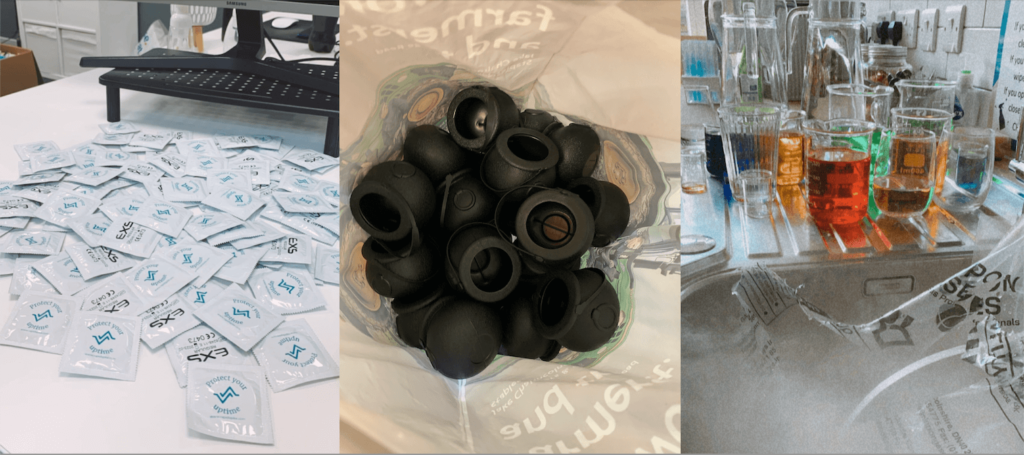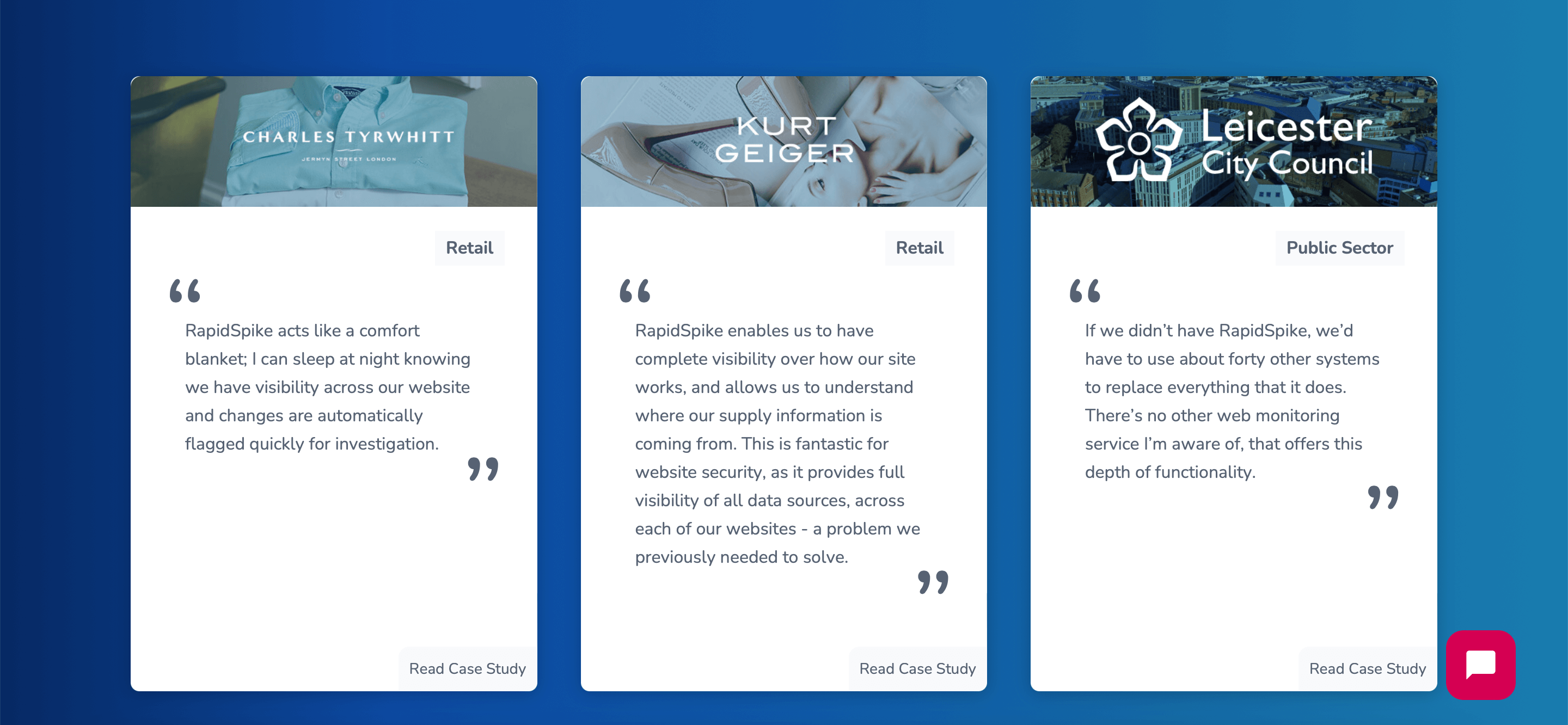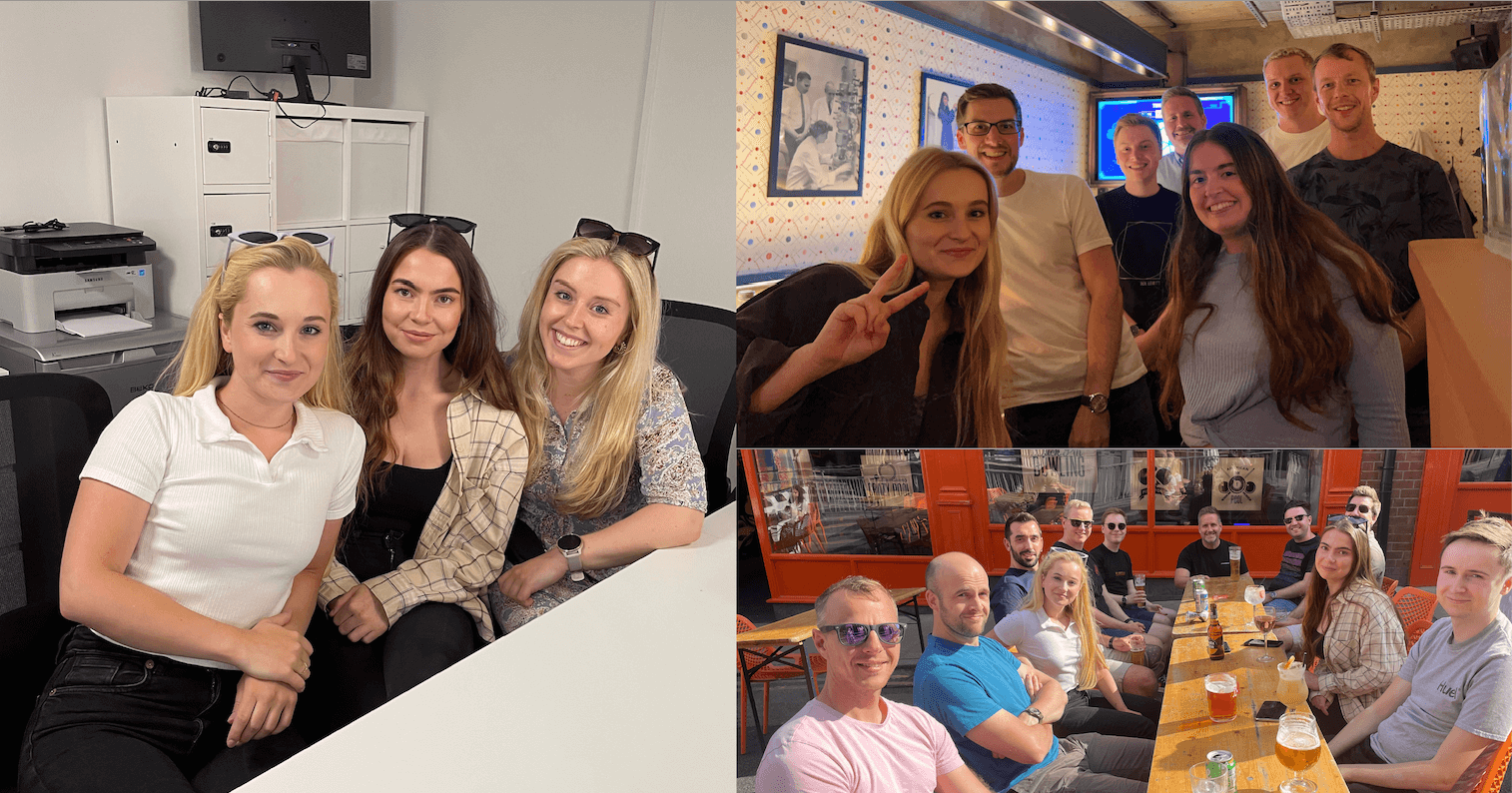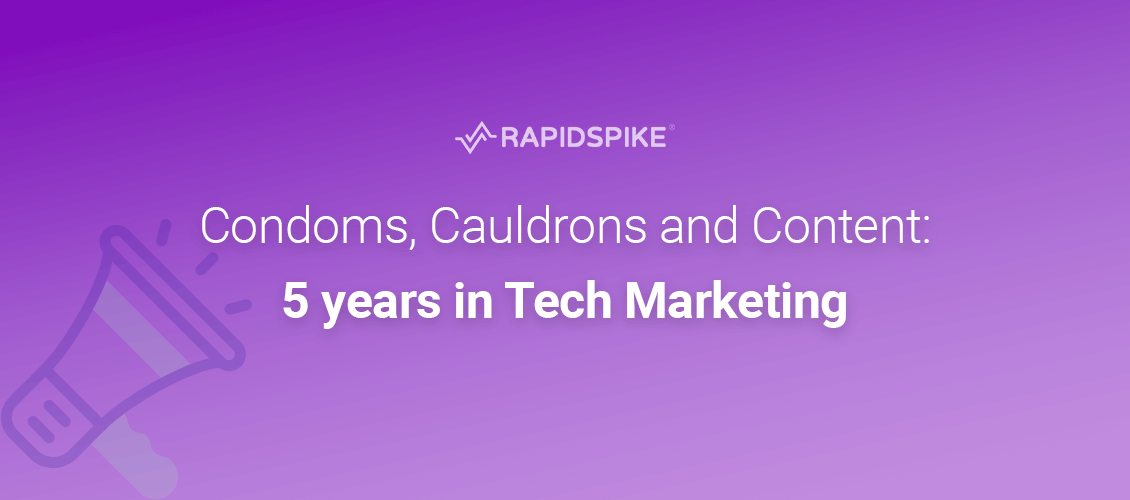My name is Georgina and I’m the Marketing Manager at RapidSpike, you may know me from hit budget Christmas adverts such as ‘Twas the Night Before Magecart’ and ‘Christmas Parties’.

This week marks 5 years working at RapidSpike and in the general marketing tech space. It’s been a jam-packed 5 years. I’ve had the privilege of expanding my marketing knowledge, trying new things, and working with some of the best people I know. I won’t pretend marketing website monitoring has been the sexiest, but I’ve loved it and to mark the occasion, I’m sharing 5 light-hearted lessons I’ve learnt over the years.
Lesson 1: Do the fun stuff even if it doesn’t work
Have you ever been at an event and realised handing someone a branded condom is…just weird? If you have at least you didn’t have hundreds left to get rid of right? Eeeek.
I wish this was the only fail I’ve had in marketing, but as the title suggests, I also over-ordered cauldrons for an event (Fantastic Data Breaches and How To Prevent Them) and had to dispose of a 10kg block of dry ice from a science-based event. Although the Head of Finance might disagree, the truth is it doesn’t really matter.
Most marketeers have gone into marketing as they have creative qualities. Using your imagination and embracing humour to come up with fun marketing campaigns is just what the tech industry needs. The aim is to captivate audiences and drive engagement to try and create a genuine connection. We’re marketing to humans after all (maybe not for long).

Lesson: 2 It’s PR not ER
Some of the biggest brands have created awful campaigns, sent inappropriate or poorly-timed messages, and been straight up offensive. But the world keeps spinning.
In marketing, it’s easy to feel like there are a lot of eyes on your work (the monkey finger sweating when sending a MailChimp email campaign is a universally feared experience). In reality, there can be, but it’s not half as serious as it feels.
In my first year at RapidSpike, I sent an email campaign with spelling mistakes, a broken image and a random misplaced paragraph. I was mortified, everyone had noticed. Thankfully (for me) another issue had come up that needed fixing and everyone diverted their attention. As the saying goes, today’s news is tomorrow’s chip paper.
This doesn’t negate the fact that people often expect marketeers to produce flashy campaigns that deliver results quickly and the lesson learnt here is that it’s all about managing those expectations. Researching, creating a strategy, timeline and realistic KPIs, can help other team members understand the rationale behind campaigns and what they entail so there are no surprises.

Lesson 3: Let the people speak
People are more likely to buy a product if they can visualise themselves using it. We’ve always encouraged customer feedback and our product roadmap has been stuffed with lots of great feature requests from our customers.
Progressing from this, we built a portfolio of testimonials, reviews and case studies from our customers. We were thrilled that customers wanted to share the problems they were facing and how RapidSpike was the solution. Sharing these experiences allowed businesses from different industries to find us. We’ve since done joint webinars and customer forums with customers to help share their experiences, and they’ve gone down a treat!
The benefit of letting customers speak is getting the messaging right for the people who actually use your product. The so-called ‘golden rule of marketing’ is to sell the benefit right? Yeah, sort of but you’re also speaking to a person at the other end of the screen so they need to know what your product is and does. “Saves you time, increases productivity and produces results you love” could be a marketing tool or a washing machine.
Simply defining your product is important to avoid wasting your own time with people looking for the wrong thing. Search engines don’t appreciate vagueness, so let your customers’ language help pave the way in your marketing.

Lesson 4: Don’t let imposter syndrome get in the way
I started working at RapidSpike straight out of university as an executive, I’ve since worked my way up to be the marketing manager. Despite being present for every marketing campaign, strategy, tool, team member, and agency, I found myself downplaying my knowledge.
You don’t need to know everything to be an expert. Being an expert in your team comes from the experiences you have in your company. Seeing the good, the bad and the ugly campaigns expands your understanding of how but mostly why campaigns didn’t work out.
Data is your best friend when imposter syndrome hits, gathering the stats, and dealing with facts helps with grounding and boosting your self-esteem. Finally, don’t hesitate to seek support when needed. Surrounding yourself with a supportive network of colleagues and friends who can uplift and encourage you is so important.

Lesson 5: Go with the flow
We’re all looking for the magic marketing equation that you can continue to replicate, but you can’t get there without trial and error. What works this week might not work the next and advice from last year can now be stale.
The tech landscape evolves rapidly due to constant innovation. New technologies emerge, algorithms change, and consumer preferences shift. Being open-minded and adaptable to change is vital. Staying relevant means committing to research and trialling new things (even if that means using GA4), pivoting when necessary and adjusting strategies.
I’ve been on a continuous learning experience in my 5 years from courses to marketing events, and of course the hit-or-miss world of LinkedIn networking. I’ve met some great people along the way to make a great support system. Being open-minded to feedback from teams both internally and externally can help with going with the flow…and they may just save you from your next marketing fail!
To Summarise…
Five years on and I’m still making unnecessary purchases, directing stupid Christmas videos and asking my teammates what the real meaning of ‘backend developer’ is. I’m also continuing my learning of marketing, embracing AI, being direct with my strategy and helping our customers (and future customers) get the most out of our product. I look forward to the future of tech marketing and the possible innovations, let’s see what the next 5 years has in store.
Bonus lesson: It’s easier to ask for forgiveness than it is to get permission
Gav – I’ve published this blog with condom in the title, sorry!






